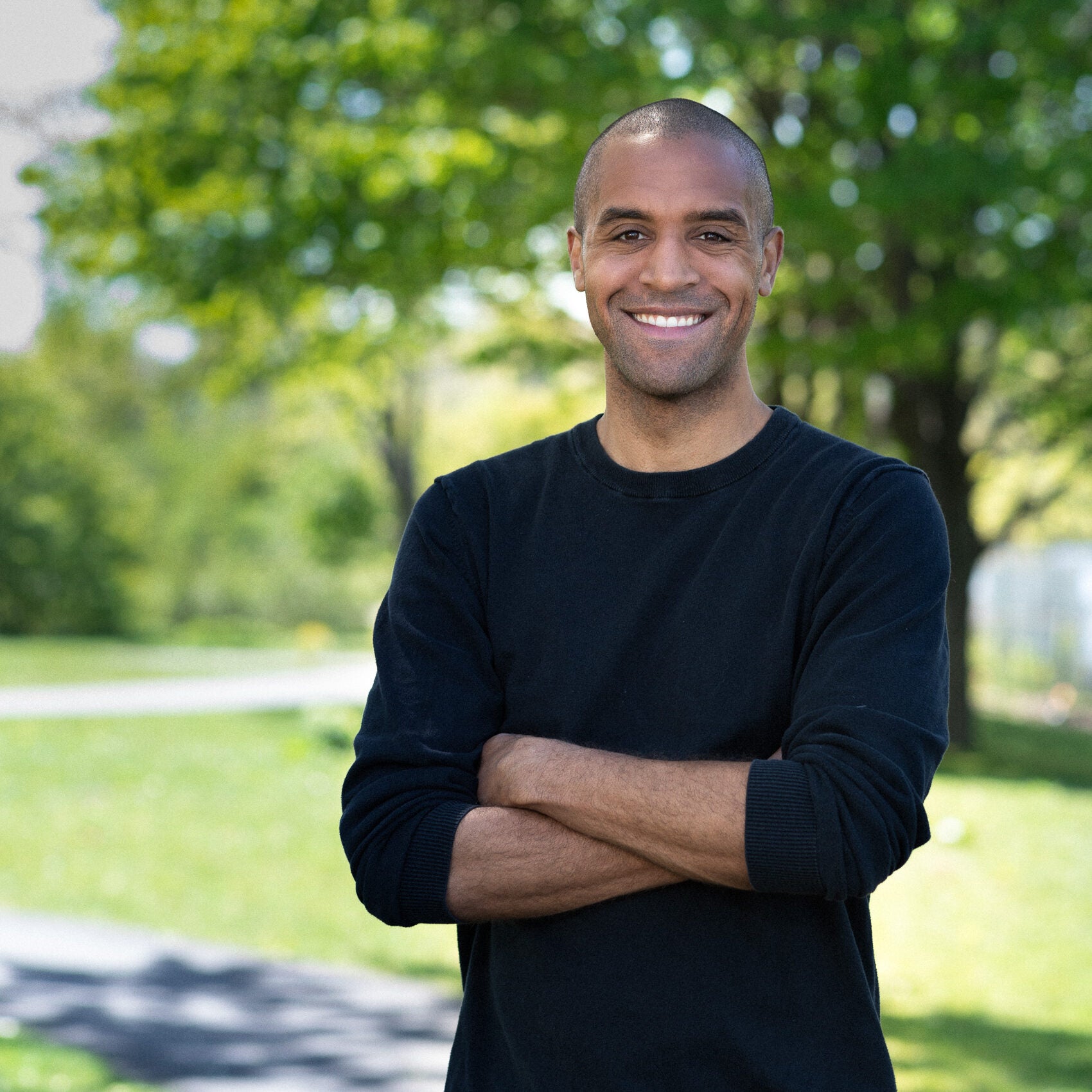Assistant Professor of Law Nikolas Bowie ’14 was chosen by this year’s graduating class to receive the prestigious Albert M. Sacks-Paul A. Freund Award for Teaching Excellence. Bowie accepted the award on Class Day with a personal speech that stressed the importance of community and paid tribute to his mother, the acclaimed legal scholar and emerita HLS professor Lani Guinier.
Introducing Bowie on Wednesday morning, Class Marshall Zekariah McNeal ’21 said, “Upon entering the HLS community, we expected to find ourselves grappling with legal concepts under the tutelage of unparalleled professors. We came looking for teachers who are perpetually engaged with the development of law, and whose arguments are precise, honest and grounded. We wanted to learn from those whose circle of care includes those distanced from the community, as well as those who are part of it. And we wanted to be inspired so that we might lock our eyes on the long arc toward justice. Professor Bowie has far exceeded these expectations.”
Bowie began his remarks with an emotion-filled tribute to his mother. She received the same award 20 years earlier, and, he said, “of the many milestones of her career, being recognized for her teaching was her proudest professional accomplishment.” He spoke of how excited he was to tell her he’d gotten the same honor but said that he also knew she wouldn’t be able to absorb the information. The same week that he was informed of the honor, she had transitioned to a hospice facility for late-stage Alzheimer’s disease. “When I did tell her about the award, I met a blank stare,” he said.
Bowie recounted that after his mother was first diagnosed in 2013, she made it clear that her greatest wish was to keep teaching for as long as she was able. “Teaching meant everything to her. To be honest, it made my dad and me a little angry: ‘What do you mean, you want to teach instead of spending time with us?’ But she was already feeling the effects of the disease, and she was persistent,” he said. “I once literally had to drag her away from the classroom and hide the keys to her office. Eventually she couldn’t hide her symptoms from anyone, and she had to retire.”
He recalled attending an HLS symposium in his mother’s honor in 2018, soon after he was hired. It was an unconventional event that included rap performances and dancing as well as lectures. “What struck me the most were the students from years earlier who’d made the pilgrimage back to Cambridge. Seeing that assembly taught me an important lesson. … The sacrifice of the job including the stress it will put on your family, may be worth it — but only if you are building justice.” He urged his students to learn from his mother’s example: “I feel a personal urgency to demand that when you look back on your own career decades from now, you can say that you’ve done the work of justice. Lead a career like the one my mom did — one that concludes not with a list of your accomplishments or an accounting of your earnings, but with a celebration of the people you have empowered.”
He also drew on his mother for some practical advice, telling students to form a “personal organizing committee” that can see them through career and personal turning points. This, he said, can be made up of work mentors and professors as well as family and friends. “Let them know their opinion of you matters, you want to make them proud. Then when it’s time to do something new, let them know that you trust their judgment about how you must satisfy your obligation on behalf of others — even if that means taking away the keys to your office so you can start on a new path.”
Finally, he emphasized the difference that work and community can make, speaking of his own experience and that of his students in a pandemic year. “My role as a teacher is how I am currently satisfying my obligation to others, and my obligation to my mom. She was on my personal organizing committee and I will gladly serve on yours. I join your families in taking pride in the justice you are about to build.”
